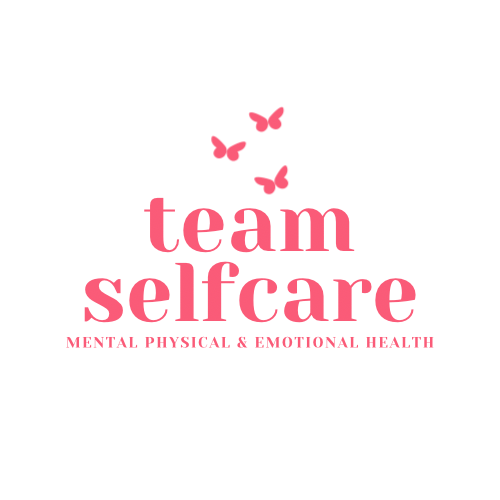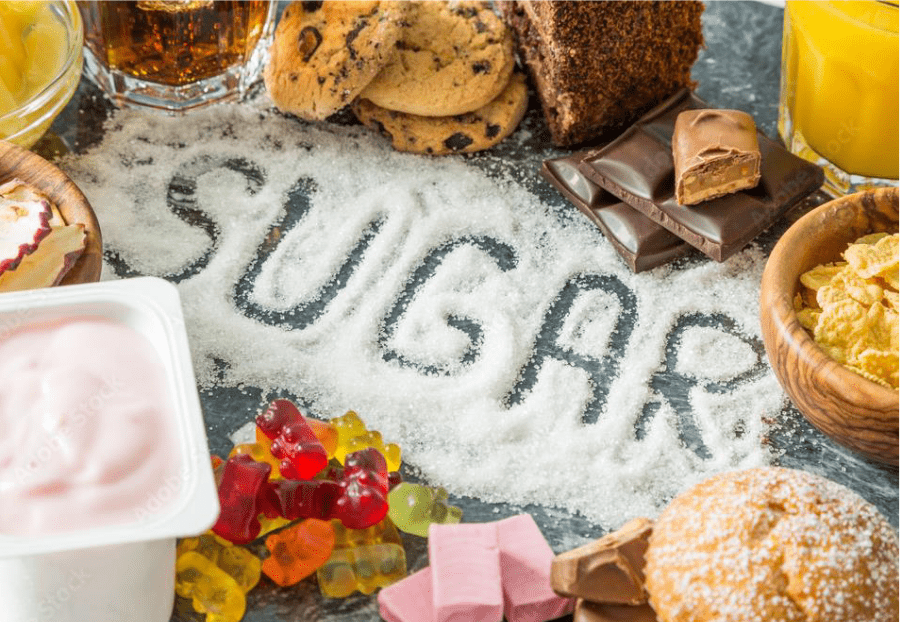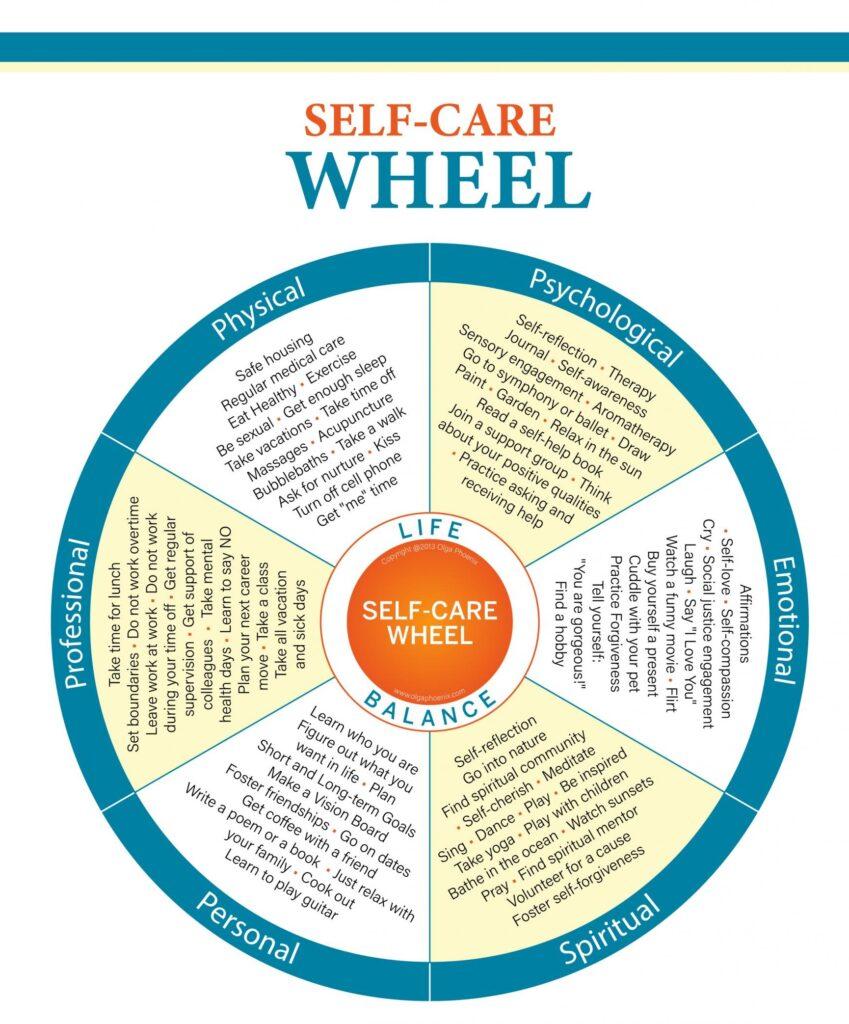The Truth About Sugar and Aging
We are all programmed to like sugar. Research shows, however, that some people are genetically much more prone to sugar and food addiction than others.
I have observed this in my clients, but it is now clear why some have more trouble kicking the sugar habit than others. The science that demonstrates that humans can be biologically addicted to sugar in much the same way we can be addicted to cocaine, heroin, or nicotine is clear. The behaviors of addiction and binging are remarkably similar in both sugar addicts and alcoholics. In fact, many recovering alcoholics switch to sugar, another readily available drug.
The human capacity for pleasure is varied. Some people need a lot more stimulation to feel pleasure, which drives us to a variety of addictive pleasures which stimulate the reward center in the brain. Compulsive gambling, sex, drug, alcohol, sugar, and other food addictions, and compulsive eating are just a few addictive pleasures that can overwhelm us.
While we often see these additions as moral failures or a character defect, it may be that all kinds of addicts are unfortunately born with genetic variations in our reward and pleasure apparatus.
Despite being the recipient of the low pleasure sugar addiction gene, we may still be able to modify its activity by adjusting our brain chemistry and receptor function by ingesting a variety of specific nutrients.
The Genetics of Pleasure
The dopamine receptor D2 aka DRD2 for short must be activated to feel pleasure in our brain. This amino acid triggers the pleasure response. Many addictions, including sugar addictions, increase dopamine temporarily. The problem is that all these additions, including obesity, sugar additions, compulsive eating have DRD2 systems that need a lot more stimulation to feel pleasure.
Some studies have suggested drugs or nutrients curb this faulty dopamine reward response. In one of these studies, naltrexone, an opioid blocker, which blocks the effects of morphine or heroin on the brain, was also used in sugar addicts. After ingesting the drug, they craved less and less, as the drug prevented them from getting the temporary sugar high.
Amphetamines are also natural appetite suppressants that reduce cravings. Therefore, children who take stimulant ADHD drugs, which are, in fact,
amphetamines that stimulate dopamine receptors, have such trouble gaining weight as they grow.
In addition, there are some promising studies of nutraceuticals that can modulate dopamine receptor function and appetite regulation. Bruce Ames, Ph.D., found that prominent levels of nutrients can reduce disease in people with 50 different gene variants. Nutrients may regulate the function of our genes, improve their function, or affect the activity of enzymes that genes produce. In fact, one–third of our entire DNA has just one job: To code and manufacture enzymes controlled by nutrient co–factors. This signifies that
nutrients have a powerful ability to modify the expression of your genes.
SUGAR AND AGING
Sugar in all its forms (cane sugar, high fructose corn syrup, etc.) is highly damaging to the skin. In fact, it is harmful to all our organ systems. So, check package ingredients for hidden sugars, and enjoy that yogurt, just be sure to eat it plain or with some added fruit and nuts, but avoid the sweetened varieties that will sabotage your healthy aging lifestyle.
Sugar suppresses the activity of our white blood cells. This makes us more susceptible to infectious diseases (colds, flu, etc.) as well as cancer. The same defective white blood cells can also cause allergies to become worse.
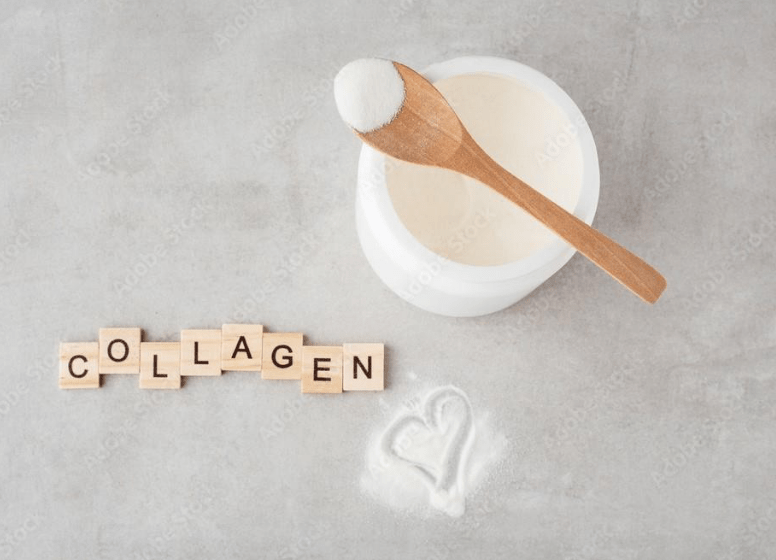
Collagen’s Natural Enemy
As a nutritionist, I know that wrinkles, deep lines, and sagging skin are a partial by–product of the process known as glycation. Sugar and other high– glycemic carbohydrates such as breads, starches, potatoes, baked goods, pastas, desserts, and sodas are quickly converted to glucose in our bloodstream. This surplus can cause a reaction called glycation. This occurs when the extra sugar molecules fasten themselves to collagen fibers. When glucose (sugar) molecules bind to protein molecules without the influence of enzymes (proteins that accelerate the rate of chemical reactions) Glycation occurs. In science, we refer to these sugar/protein bonding’s as AGEs, a suitable acronym for advanced glycosylation end products. AGEs cause the collagen fibers to lose their strength and flexibility, making the skin more vulnerable to sun damage, loss of elasticity, fine lines, wrinkles, and sagging skin.
Beauty Is Not Just Skin Deep
And while wrinkled, crepey skin is the outward appearances of AGEs, most progressive diseases are also affected by disease–producing glycation reactions. These reactions result in considerable damage to the body’s systems, including the formation of cataracts, arterial stiffening, atherosclerosis, neurological impairment, diabetic complications, wrinkled,
sagging skin, and more.
AGEs are the very heart of the aging process across all body systems, from the skin to brain and beyond, AGEs can be responsible for wrinkles, heart disease, cancer, diabetes, and much more, including age–related memory loss and Alzheimer’s disease.
The formation of AGEs is responsible for severe damage to the body, both internally and externally. And sugar is a primary culprit.
The Glycation Fighter: Alpha Lipoic Acid
We also have several highly effective topical anti–glycation treatments for the skin. Alpha–lipoic acid (ALA), a potent nutrient when taken as a supplement, is also essential as a topical treatment. We highly recommended it as a nutritional supplement because it has powerful anti–glycating effects and is an extremely important anti–inflammatory.
Alpha–lipoic acid (ALA) increases the cell’s ability to absorb glucose for metabolism. This removes glucose from the blood, thereby helping to prevent damaging glycation reactions. Because it is both fat and water–
soluble, it can reach all cell portions, providing complete protection. This is true whether taken as a supplement or used as a topical. ALA’s fat solubility allows it to penetrate the skin where it can deploy its anti–inflammatory capabilities to great benefit. It protects the cells from damage from free radicals and halts the initiation of a skin–damaging inflammatory cascade.

What About Sweeteners?
My clients often ask me if eating sugar, and other artificial sweeteners can accelerate the aging process. It most certainly can. When our blood sugar and insulin levels rise, whether from a poor diet (sugary, starchy foods) or stress, we experience a severe rise in inflammatory chemicals at a cellular level. This causes inflammatory diseases such as inflammatory bowel disease (IBD), asthma, rheumatoid arthritis, and even acne to worsen dramatically.
If you are concerned about your health and not accelerating the aging process, it is best to avoid all forms of refined sugar and artificial chemical sweeteners. There are natural sugars found in fruits and vegetables that should be our only source of sugar. These foods are high in anti–inflammatory antioxidants, help stabilize blood sugar and nutrients that promote beautiful skin and a healthy body.
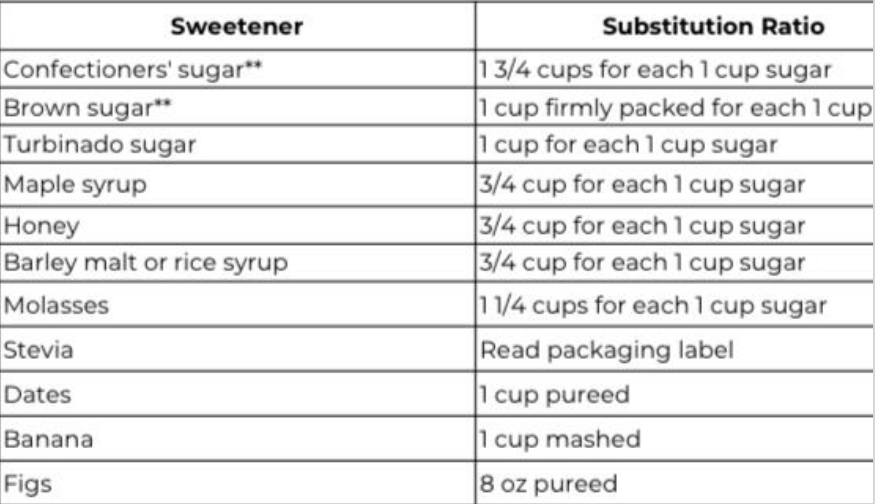
** Use sparingly.
Adapted from Whole Foods

10 REASONS YOU SHOULD CUT SUGAR FROM YOUR DIET
Not so long ago, we were told to cut way back on salt. Next, we were told to cut back on sugar because studies linked it to type–2 diabetes, obesity, and many other health conditions.
In 2016, it was determined that we should drop sugar from our diet altogether. This can be very tricky because many of us have a sweet tooth, thanks to diets rich in sugary treats. The more sugar we have consumed over the course of our lives, the more our body craves it now.
According to The Huffington Post, the average person in the United States consumes more than 126 grams of sugar daily. This is almost twice the average sugar intake of all 54 countries studied by Euromonitor, a leading independent provider of strategic market research. Additionally, 126 grams is two times more than the recommended daily intake, which the World Health Organization defines as 50 grams daily for people at a normal weight. Eliminating sugar from your diet could prevent a variety of health conditions in the future. Here is why:
1. Sugar Is Linked to Depression
Multiplestudies have suggested a link between a diet high in sugar and depression.
2. Obesity Is Linked to High Sugar Intake
In 2014, the National Health Service (NHS) found that the link between sugar and obesity is real because sugar is loaded with empty calories (energy) that your body stores for later days. Unfortunately, those days rarely come, and eventually, that built–up energy turns into fat.
3. Sugar Is Linked to High Blood Pressure
Americans are getting diagnoses of hypertension or high blood pressure in greater numbers every year. The Mayo Clinic suggests that a poor diet is one of the most significant risk factors for high blood pressure. The greater amount sugar you eat, the higher your bad cholesterol levels surge, boosting your blood sugar levels.
4. Sugar Puts You at Greater Risk for A Heart Attack
Consuming a high sugar diet increases your risk of having a heart attack. Studies show that people who consume 25% more sugar than an average person have a more substantial chance of dying of a heart attack.
5. Sugar Is Highly Addictive
While sugar is not a drug, its effects are like one. For this reason, sugar is just as addictive as heroin. It hijacks the same neural pathways as heroin and cocaine and leave people craving more.
6. Sugar Is Linked to Fatty Liver Disease
Sugar is primarily composed of two simple types of sugars: Fructose and Glucose. Fructose is the bad boy that immediately heads to your liver. As time goes on, a diet high in sugar can cause a fatty liver, which,
if left untreated, can lead to chronic liver disease.
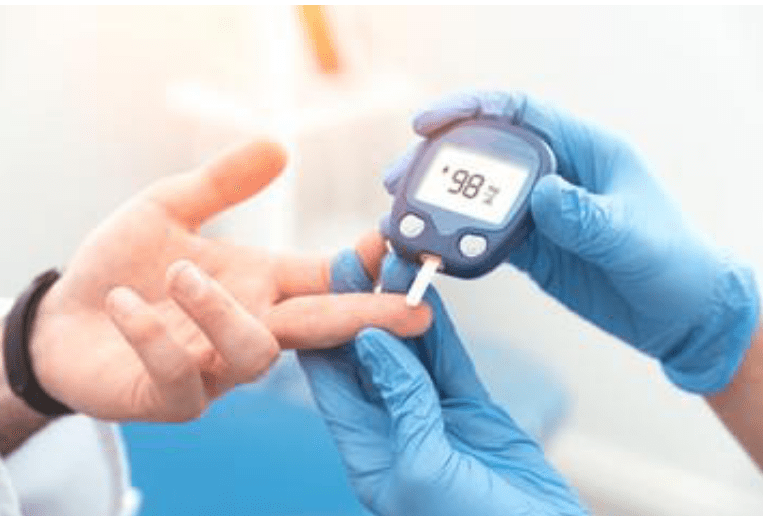
7. Sugar Is Linked to Diabetes
Undoubtedly, one of the most significant connections researchers have made is that of sugar and diabetes. Diabetes occurs when the pancreas does not create enough insulin, the hormone we rely on to turn sugar into fuel. Diabetes is a cruel disease that cannot be cured. But it is preventable.
8. Sugar May Cause Cancer
Although studies are still in the beginning stages, there is research that suggests sugar could cause certain cancers.
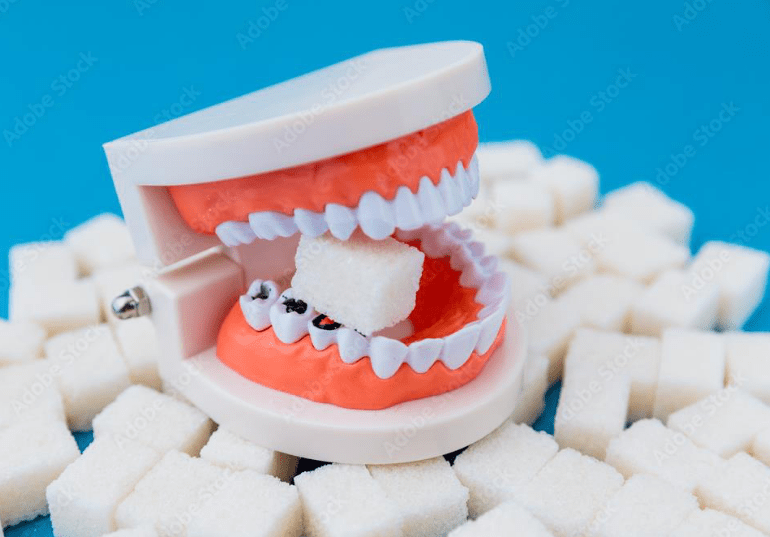
9. Sugar Rots Your Teeth
Although sugar is not the sole reason for oral problems, it can cause a great deal of damage to your molars. This is due to the debris left on your teeth, which can lead to plaque issues, which if left untreated, can lead to cavities.
10. You Will Feel Less Hungry
Because sugar is so addictive, you want to eat more of it. Eliminating it out from your diet will balance your appetite, and you will no longer feel like you are in starvation mode.

OVERCOMING SUGAR ADDICTION
Even if you are stuck with the sugar addiction low pleasure gene, you may be able to modify the gene activity by modulating your brain chemistry and receptor function. This can be accomplished through the ingestion of specific nutrients that either improve gene expression, or modify the activity, the enzymes, or the receptors, even if they are impaired.
The regulation of hormones and neurotransmitters that affect appetite and cravings is complex. It depends on many factors, including stress, how quickly food spikes our blood sugar, nutritional deficiencies, getting enough sleep, chemicals such as artificial sweeteners, food sensitivities that drive inflammation, and more.
For those struggling with food addiction, remember it is not a moral failing or lack of willpower.
10 THINGS TO DO TO OVERCOME SUGAR ADDICTION
1. Balance Your Blood Sugar
Balance your blood sugar as research studies show that low blood sugar levels are associated with lower overall blood flow to the brain, which translates into more bad decisions.
2. Eat a Nutritious Breakfast
To keep your blood sugar stable, eat a nutritious breakfast that includes protein such as eggs, protein shakes, or nut butters. Studies also show that by eating a healthy breakfast people can maintain a healthy
weight.
3. Eat Smaller Meals More Often
Eat smaller meals throughout the day. Try to eat every 3–4 hours and be sure to have protein (lean animal protein, beans, nuts, seeds) with each meal and snack.
4. Do Not Eat Before Bed
Avoid eating later than 3 hours before bedtime.
5. Eliminate Sugar and Artificial Sweeteners from Your Diet
By eliminating sugar and artificial sweeteners from your diet, your cravings will go away. Just make up your mind to do it, and then go cold turkey. Cutting back does not work. Your brain needs a reset.
6. Eliminate Refined Sugars from Your Diet
Eliminate refined sugars, sodas, fruit juices, and artificial sweeteners from your diet. These are all foods that will feed your cravings.
7. Test For Hidden Allergies
Determine if hidden food allergies are triggering your cravings. This testing can be accomplished by practicing an elimination diet. Such as the Healthily Aging 12–Day Detox program. People often crave foods they have a hidden allergy to.
8. Get Enough Sleep
Get 7 or 8 hours of sleep each night. Research shows that lack of sleep increases cravings.
9. Optimize Your Nutrients
Optimize your vitamin D level because when vitamin D levels are low, the Leptin hormone that turns off your appetite does not work, and you will feel hungry all the time, no matter how much they eat. Also, optimize omega–3 levels as low levels of omega–3s engage in insulin control, inflammation, and normal brain cell function.
10. Consider Supplements
Consider taking natural supplements to control cravings. 5–HTP, tyrosine, and Glutamine are amino acids that help reduce cravings. Stress–reducing herbs, such as Rhodiola can be beneficial. Chromium is an herb that balances blood sugar and can help take the edge off cravings. Glucomannan fiber is beneficial to reduce the spikes in sugar and insulin that drive cravings and hunger.
Here are some of the names that sugar goes by on ingredient lists:
Anhydrous dextrose
Brown sugar
Cane juice
Confectioner’s powdered sugar
Corn sweetener
Corn syrup
Corn syrup solids
Crystal dextrose
Dextrose
Evaporated corn sweetener
Fructose
Fruit juice concentrates
Glucose
High–fructose corn syrup (HFCS)
Honey
Invert sugar
Lactose
Liquid fructose
Malt sugar
Malt syrup
Maltose
Maple syrup
Molasses
Nectars (pear, peach nectar, etc.)
Pancake syrup
Raw sugar Sucrose
Sugar
Sugar cane juice
Syrup
White granulated sugar
CONCLUSION
There are many benefits to cutting sugar from your diet as mentioned above. One of my favorite outcomes was clearer thinking, because sugar can cause brain fog and when we eliminate sugar from the diet the brain has a break and can become clearer and more focused.
You may also experience more energy in the body. During the first few days of eliminating sugar, you may experience an increase of tiredness or drowsiness, but this should pass within the first couple days, and you should notice an increase of sustained energy soon. You may also experience better sleep towards the end of your first week of going sugarless.
After a few days, you will have significantly less craving for sugar. Eating sweet and sugary foods will taste significantly sweeter and you will probably find yourself eating less sugar than you normally would before becoming satiated.
Some people also experience weight loss when giving up sugar. People who eat a lot of sugar or drink sugary sodas can experience great benefit in giving up these high–sugar habits. Brain fog should be reduced, and you should find it is easier to focus on tasks.
Eliminating sugar from your diet will ensure that you will feel results and be encouraged rather than discouraged. Healing from sugar addiction is not easy, but significant changes in cravings can occur in about a week, which is a brief time to see such results.
All this said, being successful in cutting sugar from your diet does not mean never having a glass of wine or a piece of birthday cake ever again. That is not realistic or even desirable. There are many good reasons to ditch the sugar habit. But there are also very good reasons to celebrate with a treat. But it’s just that, a treat. All things in moderation.
Be well.

References:
Stopping Addiction to Sugar: Willpower or Genetics – Dr. Mark Hyman.
https://drhyman.com/blog/2011/02/04/stopping–addiction–to–sugar–willpower–
or–genetics/
Blood Sugar Solution, Dr. Mark Hyman
Sugar & Aging by Dr. Perricone
https://www.thehealthcoachgroup.com/blog/sugar–aging–by–dr–perricone/
